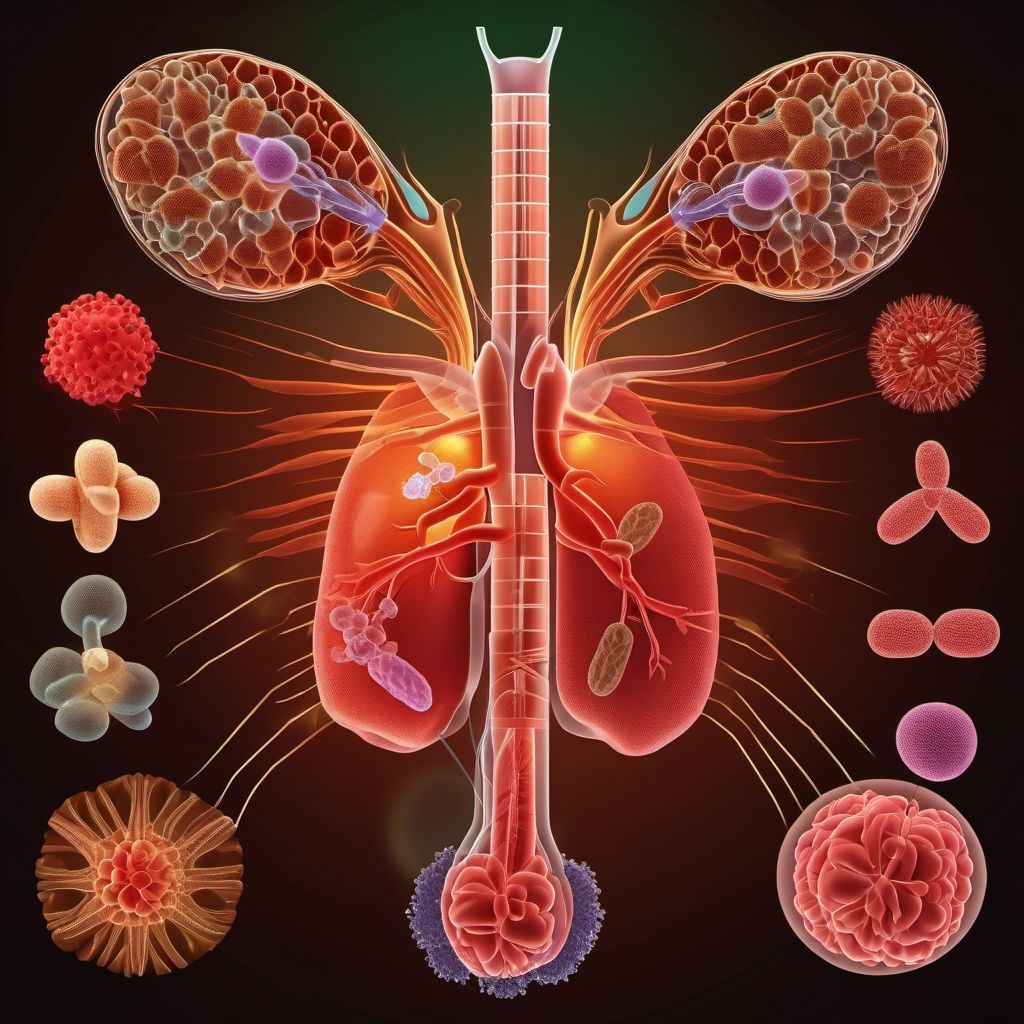
Tuberculosis of other organs Save
ICD-10 code: A18
Chapter: Certain infectious and parasitic diseases
Tuberculosis of Other Organs: Symptoms, Causes, and Treatment
Tuberculosis (TB) is a bacterial infection that primarily affects the lungs, but it can also affect other parts of the body, such as the kidneys, bones, and lymph nodes. When TB affects organs other than the lungs, it is called extrapulmonary TB. In this article, we will discuss tuberculosis of other organs and its symptoms, causes, and treatment.
Symptoms of TB of Other Organs
The symptoms of TB of other organs depend on the organ affected. For example, if TB affects the bones, the patient may experience bone pain, joint stiffness, and swelling. If TB affects the kidneys, the patient may experience pain in the lower back, blood in the urine, and increased urination. If TB affects the lymph nodes, the patient may experience swelling and pain in the affected area. Other symptoms may include fever, night sweats, and weight loss.
Causes of TB of Other Organs
TB of other organs is caused by Mycobacterium tuberculosis, the same bacteria that cause pulmonary tuberculosis. The bacteria can spread from the lungs to other parts of the body through the bloodstream or lymphatic system. TB of other organs can also occur when a person comes in contact with someone who has TB or is exposed to contaminated food or water.
Treatment of TB of Other Organs
The treatment of TB of other organs is similar to that of pulmonary TB. The patient will need to take a combination of antibiotics for several months. The length of treatment depends on the severity of the infection and the organ affected. It is important to complete the full course of treatment to ensure that the bacteria are completely eliminated from the body. In some cases, surgery may be required to remove infected tissue.
- Take antibiotics as prescribed by your doctor
- Avoid close contact with others until you are no longer contagious
- Cover your mouth and nose when coughing or sneezing
- Wash your hands frequently
- Eat a healthy diet and get plenty of rest
In conclusion, tuberculosis of other organs is a serious but treatable condition. If you experience any of the symptoms mentioned above, it is important to seek medical attention as soon as possible. With proper diagnosis and treatment, you can recover from TB of other organs and regain your health.
Diagnosis Codes for Tuberculosis of other organs | A18
Not Available